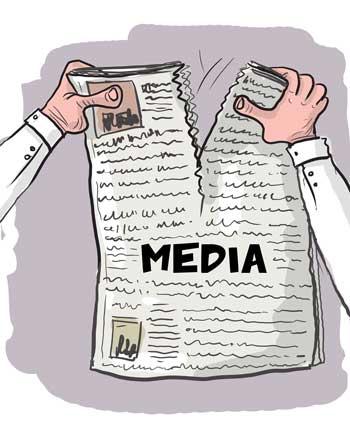Reply To:
Name - Reply Comment
With the 20th Amendment being pushed through after using various means to get the support of eight Opposition MPs, the President now has more powers, perhaps more than any other president since the executive presidential system was introduced by JR Jayewardene in 1978. President Gotabaya Rajapaksa has the powers to appoint the Chief Justice, the judges of the Supreme Court and the Court of Appeal while Parliament has been devalued with the ruling Sri Lanka Podujana Peramuna (SLPP) having or buying a two-thirds majority while the parliamentary council could only make its observations. Under the 19th Amendment, the all-party Constitutional Council had wide powers even to reject the recommendations of the President. In terms of 20A the President will also appoint the Auditor General and the Procurement Commission, thus taking away the financial powers of Parliament. Thus the independent mainstream media and the social media networks have a key role to play because the state media and the other indirectly controlled groups largely comprise stooges or sycophants to distort or doctor the news to suit the ends and the ambitions of the ruling alliance.

It is in this context that on Monday November 2, we mark the United Nations International Day to End Impunity for Crimes against Journalists. In a special statement, the UN says in the past fourteen years from 2006 to 2019, close to 1,200 journalists have been killed for reporting the news and bringing information to the people. In nine out of ten cases the killers go unpunished. Impunity leads to more killings and is often a symptom of worsening conflict and the breakdown of law and judicial process. These figures do not include the many more journalists, who on a daily basis suffer from non-fatal attacks, including torture, enforced disappearances, arbitrary detention, intimidation and harassment in both conflict and non-conflict situations. Furthermore, there are specific risks faced by women journalists, including sexual attacks, the UN says.
Worryingly, only one in ten cases committed against media workers over the past decade has led to a conviction. This impunity emboldens the perpetrators of the crimes and at the same time has a chilling effect on society, including journalists themselves. Impunity breeds impunity and feeds into a vicious cycle, the UN adds.
When attacks on journalists remain unpunished, a negative message is sent that reporting the “embarrassing truth” or “unwanted opinions” will get ordinary people in trouble. Furthermore, society loses confidence in its own judiciary system which is meant to protect everyone from attacks on their rights. Perpetrators of crimes against journalists are thus emboldened when they realise they can attack their targets without facing justice.
The United Nations Educational Scientific and Cultural Organisation (UNESCO) says it is concerned that impunity damages whole societies by covering up serious human rights abuses, corruption, and crime.
Strengthening investigations and prosecutions to end impunity for crimes against journalists, the World Press Freedom Conference 2020 will be held on December 9 and 10 this year. It is being convened by UNESCO and the Netherlands to celebrate world press freedom day and the international day to end impunity for crimes against journalists. This will be celebrated in an innovative format, merging digital and in-person elements.
We need to remember that independent journalism is not so much a profession but more so a vocation similar to the priesthood. Journalists need to remember they are the voice of the voiceless people the source through which the sovereign people exercise their fundamental right to the freedom of information and expression. Those who are not acting according to the principles of this vocation could be described as hacks, who are acting for personal gain or glory and promoting mainly the interests of the powers that-be and not the people.